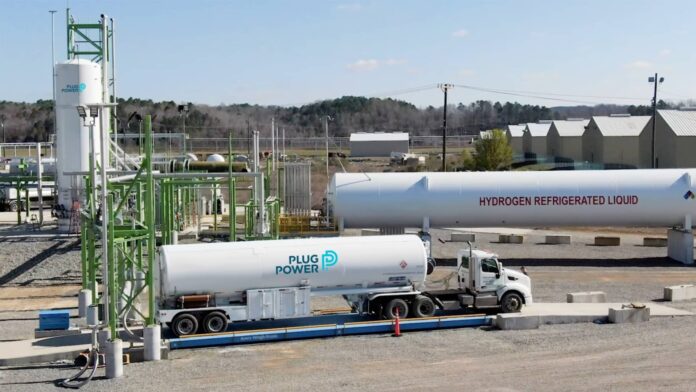Next year should be a pivotal one for clean energy companies — and certain stocks are poised to stand out in the crowd, according to JPMorgan. Supply constraints and Covid-related dislocations have made for a difficult 2022 for clean energy names, analyst Bill Peterson said. Those headwinds will abate further into 2023, but companies will also be contending with rising interest rates and a potential recession. “While a weakening macro could present new challenges, as demand could be dampened, potentially delaying energy transition efforts, we still anticipate significant growth and inflection points and/or initial adoption across clean transport sub-sectors,” Peterson wrote in a note Thursday. Specifically, he expects hydrogen and electric-vehicle charging infrastructure enablers to outperform. His top picks are Plug Power and ChargePoint . Both names will likely have strong demand even in a macroeconomic slowdown, have a clear path to drive margin expansion and have sufficient cash and liquidity to fund the business plan, Peterson said. Hydrogen company Plug Power is a leader in the emerging global hydrogen ecosystem, Peterson said. Positive catalysts for the business include Plug’s green hydrogen and electrolyzer segments, as well as the growing mobility and stationary power segments, he said. “The company continues to innovate, pursue global partnerships and acquisitions, and win customer bookings across its lines of business,” Peterson wrote. He said the company is well-positioned to meet its 2026 revenue and margin guidance of $5 billion and 17%, respectively. The stock is down 46% year to date. In the EV charging space, ChargePoint is poised to benefit from increasing demand, Peterson said. The company provides charging hardware, software and services to site hosts and already has an expansive footprint of 350,000 ports in the U.S. and Europe, he pointed out. “The added investments in its go-to-market efforts are key to seed its target markets. Thus, the reward should be strong, sustainable growth within an expanding customer base as the EV market expands,” Peterson wrote. The stock has lost nearly 41% so far this year. —CNBC’s Michael Bloom contributed reporting.
© heardonwallstreet.com


